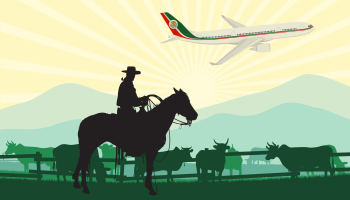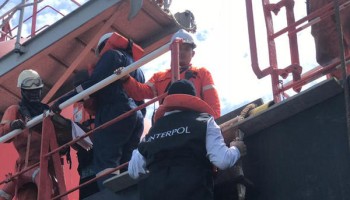“When you have a breakdown in police and courts and corrections, organized crime is ripe,” UN police head Andrew Hughes told the New York Times. “We also see the toxic effect of corruption, because they are able to corrupt officials, which makes it difficult to build a functioning society.”
Under a new idea dubbed the “global policing doctrine,” Interpol will share its secure communications network, as well as wanted notices, DNA records, fingerprints and photographs with UN police deployed to hot spots. Interpol, the 86-year-old international police cooperation agency, is hosting its general assembly in Singapore this week.
Against Transnational Crime
The focus of the new initiative will be on fighting transnational crimes such as terrorism, human trafficking and the drug trade, which flourish in weak states. For example, South American cocaine cartels now use conflict-blighted countries in West Africa – Sierra Leone, Liberia and Guinea Bissau – as transit points for shipments to Europe. The UN estimates that at least 50 tons of cocaine passes through West Africa to Europe every year.
Norway’s foreign ministry has pledged more than $2 million to help pay for developing the new standards, according to the UN. Interpol members will debate the new standards and come up with a formal declaration by the end of the year.
Police have been part of UN peacekeeping missions since a police component deployed to Cyprus with UN peacekeepers in 1964. UN police have served in missions to Bosnia and Kosovo, with varying degrees of success. Today, more than 12,000 police serve in 17 countries along with more than 95,000 peacekeepers. And because 45 years of experience have shown that crime and corruption are part of conflict, UN Secretary-General Ban Ki-moon said Interpol was “a natural partner” that could help the UN restore stability in the aftermath of conflict.
--Beth Kampschror





